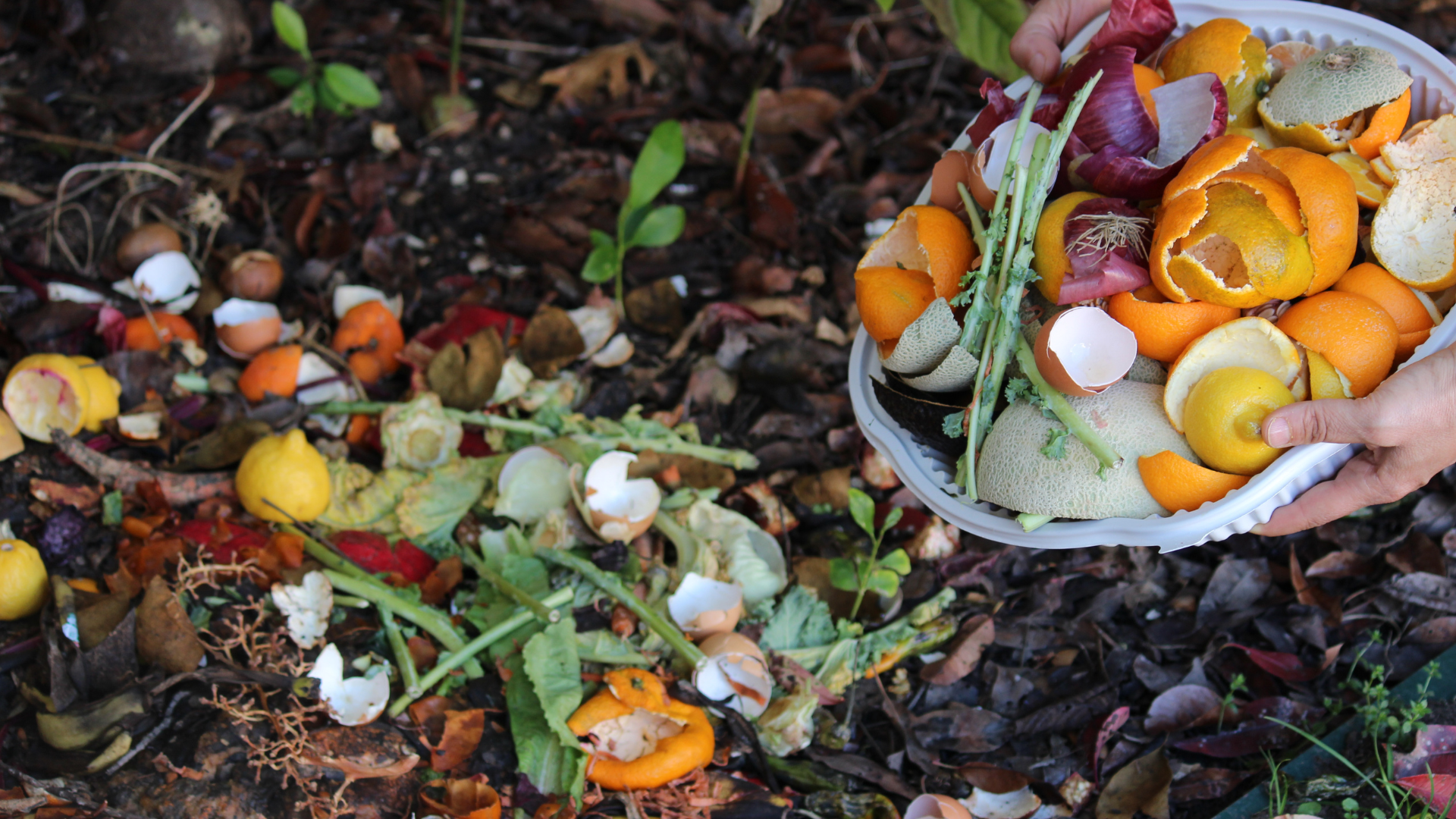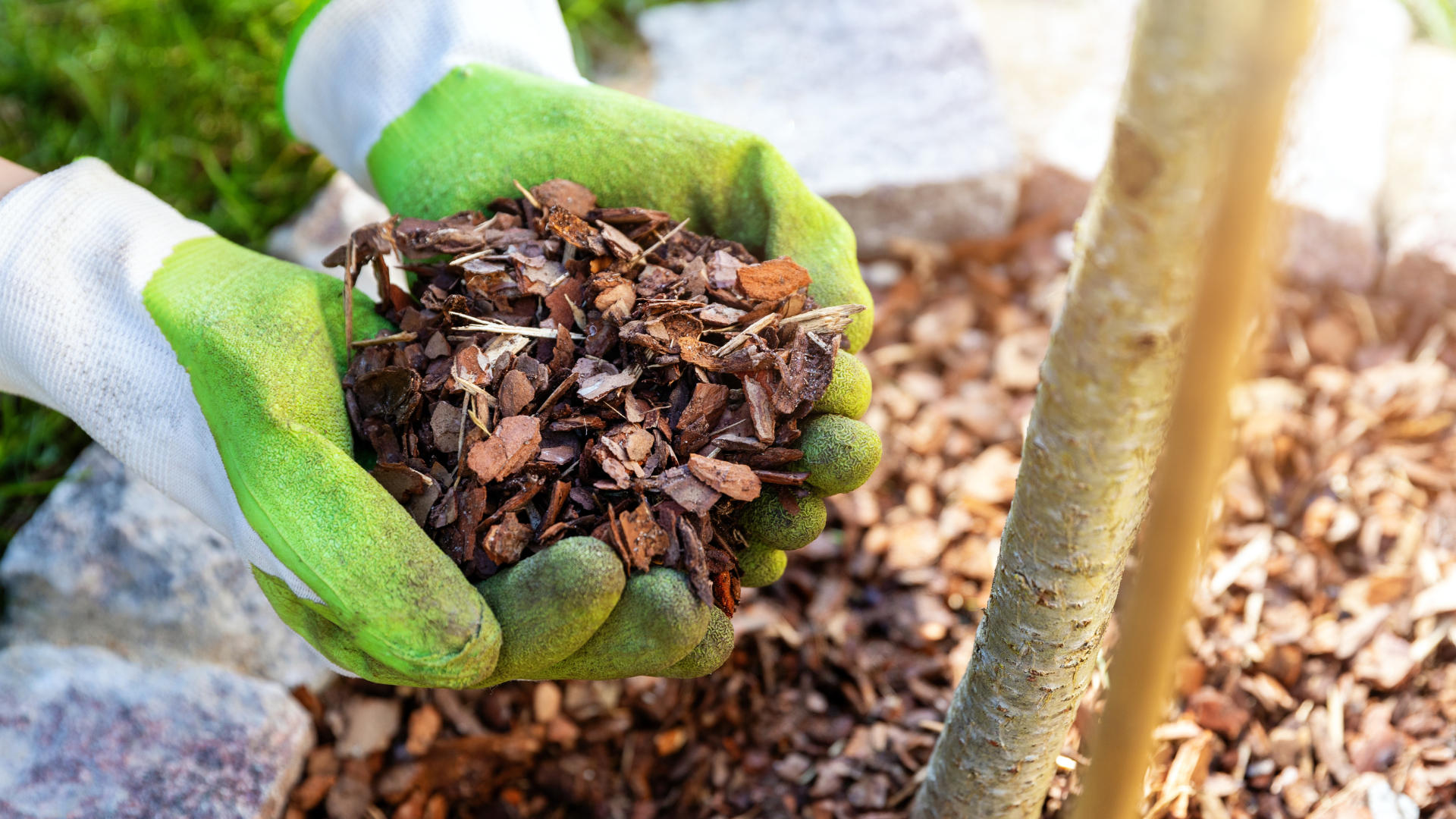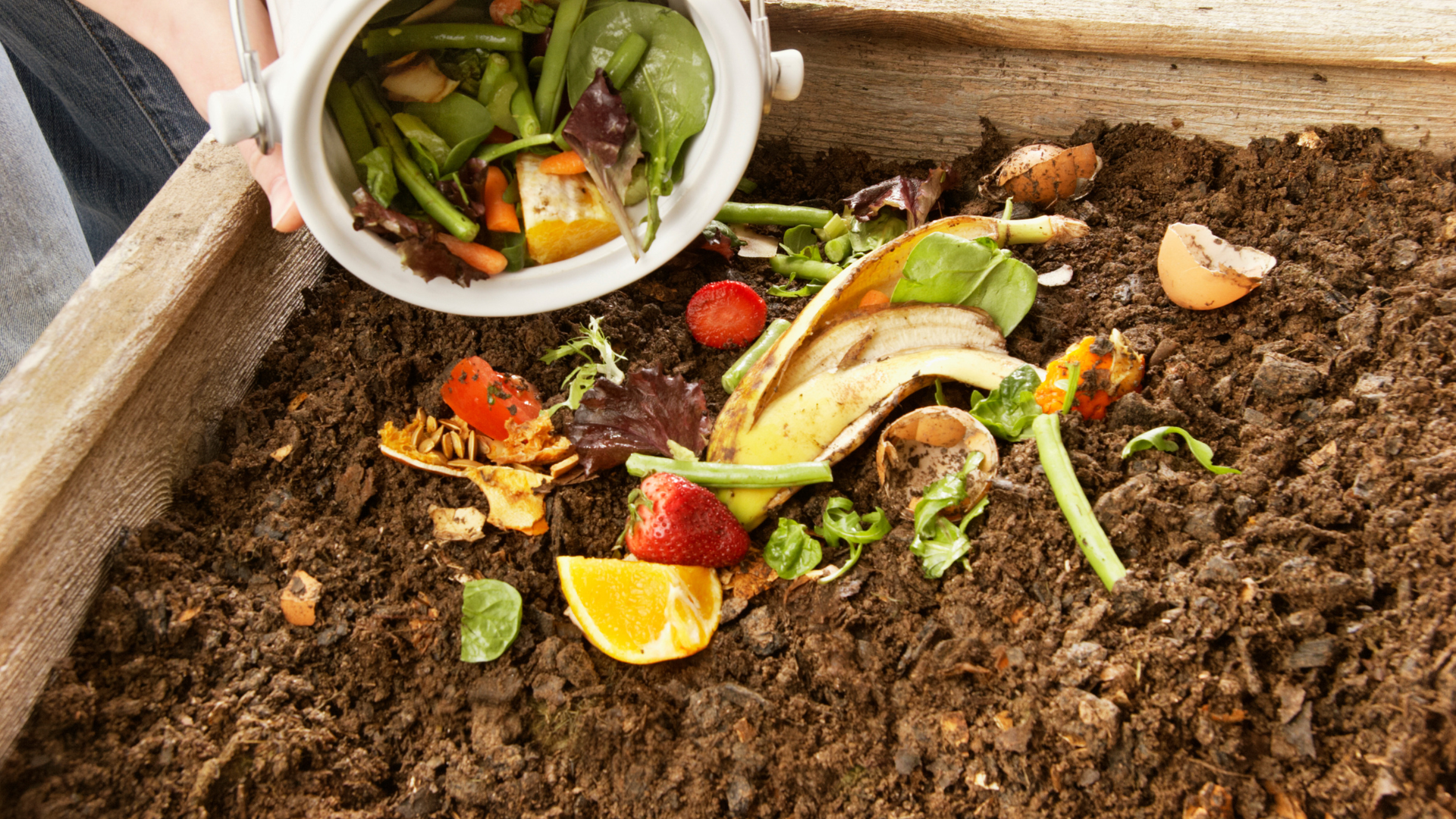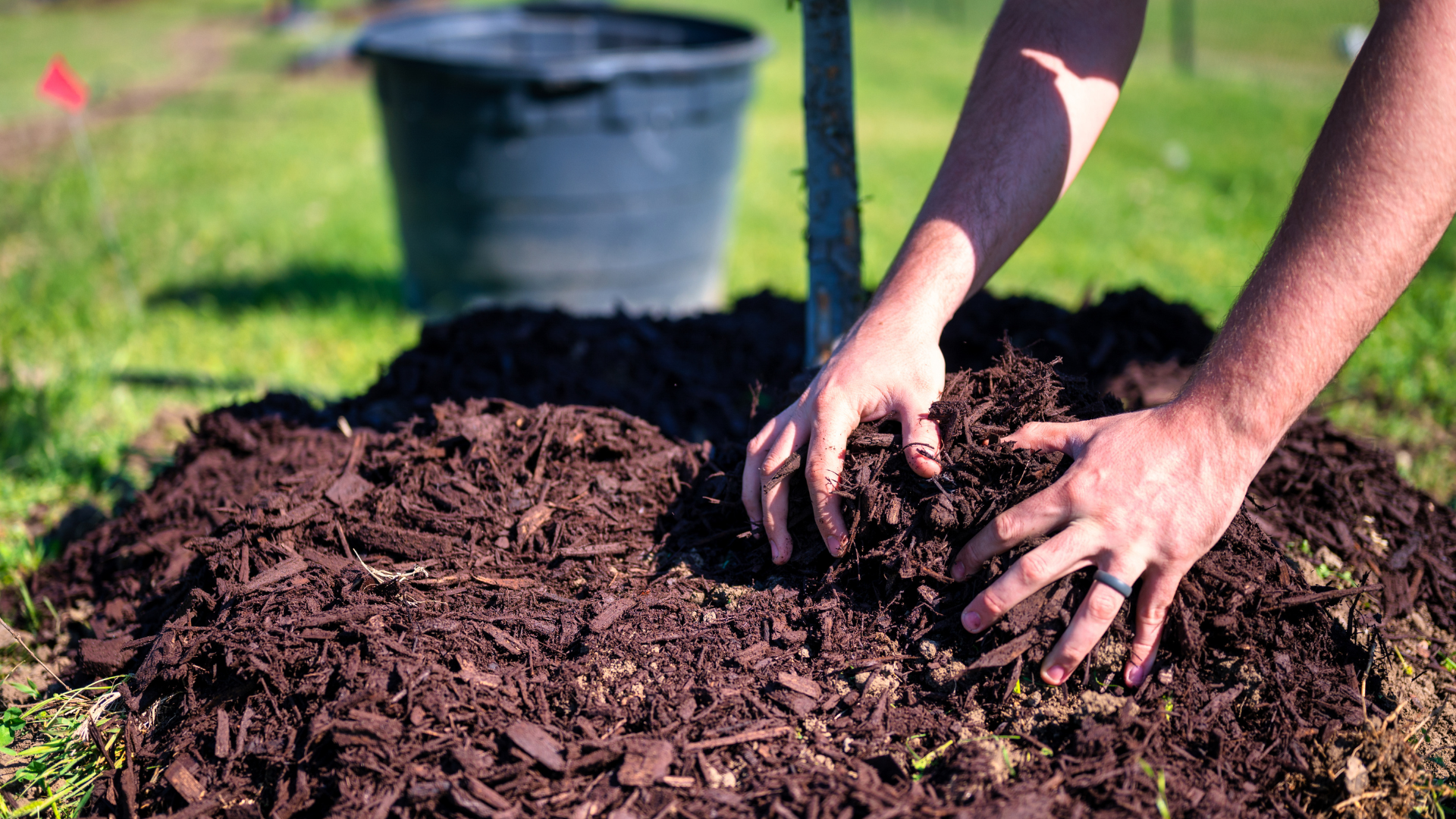Mulch vs Compost: Which one is better for your garden?
Let's go over the differences between compost and mulch and see why both are useful garden resources
If you're preparing your garden for the season you should know the difference between compost and mulch.
Both are incredibly useful resources for gardeners, and here are the facts you need to know about them and they're both incredibly useful in your garden.

What is Compost?
Compost is made of organic material and is primarily used to restore nutrients to the soil. Common ingredients for compost include kitchen scraps and organic matter, including:
-
-
Food leftovers, like apple cores, orange peels and other organic matter
-
Lawn trimmings like grass clippings, leaves or other plant materials
-
Certain organic materials like eggshells can act as nutritional additives, adding calcium to the compost
-
Compost takes time to create as the organic material breaks down and decays. Many homes will have a compost bin in their backyard which will gradually grow, creating a viable garden resource as it rots. You can stock your compost so it acts as a soil amendment, restoring certain nutrients or chemicals your soil is missing, like if you need to increase its pH value.
All organic vegetable matter will eventually break down and restore essential nutrients to the soil. Compost is a manufacturing process used to create a highly nutritional soil mix to add to your garden.
Uses for compost include:
-
-
Mixing into soil in your planters
-
Adding to your existing soil in your vegetable or flower garden
-
Reducing garbage waste in your home, since any organic material going to your compost is being diverted from the landfill
-

wHAT IS MUlch?
Mulch, like compost, is a soil mixture. However mulch uses wood chips and more woody, fibrous material like tree bark. You can create your own mulch at home or buy it at your local hardware store or garden center.
Common materials in mulch include:
-
-
Wood chips
-
Tree bark
-
Wood shavings
-
Garden soil
-
Mulch is a very common garden resource used to beautify gardens and protect the soil while adding to the soil base. It is most frequently spread around on the soil surface, where it will decay over time and add to the soil base.
If you own a wood chipper, it can be very easy to produce wood chips. Add compost or soil, and you have an easy recipe for mulch.
Common uses for mulch include:
-
-
Moderating soil temperature
-
Preventing soil erosion
-
Control weeds
-
Retain moisture in the soil
-
There are different kinds of mulch as well. Bark mulch is often used for its aesthetic, and has a pleasant look to it while suppressing weed growth and reducing soil erosion. Softwood barks are commonly used, but you can use hardwood barks too.
There are also inorganic, or synthetic mulches, made from materials like gravel, but these ones won't decay over time or add to your soil base.

When to use compost or mulch
Compost and mulch serve two very different purposes in your garden. Here are the uses for both:
Compost
Compost is great when used to add to the existing soil base. It's best used when:
-
-
You have depleted soil that lacks existing nutrients that needs to be restored
-
You have sandy soils which need a mature compost to build it up
-
You have a vegetable garden that and want to provide a boost for the growth of your crops
-
Compost can help turn aging, sandy soil into a viable, dark brown substance once again by providing essential nutrients. Just feed your garden beds regularly from your compost pile and you've got a recipe for thriving gardens. Compost is incredibly easy to make at home, even if you have a small compost bin on your back porch.
It's also great for property owners with a lot of organic matter like grass clippings, pine needles or leaf piles on their property, who want to put them to use restoring the soil base on their property. Let the decomposition process take hold and enjoy the earthy smell as you spread a thick layer of compost on your garden.

Mulch
Mulch is best when added to the top soil in a garden. You should use it when:
-
-
You want a protective layer around your soil and plants
-
You're worried about soil erosion or want greater control over soil temperature
-
You have weeds and want to snuff them out while keeping your garden thriving
-
Not all mulch is made equal, so be sure to use high quality mulch. If you have wood shavings or wood chips from your own property, you can easily make your own mulch at home. Use compost as a base, add woody materials to it and you have east at-home mulch that can keep your garden protected for the season.
This is great for property owners with a lot of wood and yard debris, such as leftover yard waste from wood chipping or tree trimming. Softwood barks from felled trees can also be harvested to create valuable mulch. Just add a top layer of mulch and watch as it prevents weeds, regulates temperature and adds to your soil profile.
SHOP WOOD CHIPPERS
WC46 4" PTO
The WC46 chipper has a chipping diameter up to 4". It's designed for tractors with 15-30 HP at PTO and features an auto-hydraulic infeed system and 360-degree swivel discharge.
WC68 6" PTO
The WC68 chipper has a chipping diameter up to 6". It's designed for tractors with 20-50 HP at PTO and features an auto-hydraulic infeed system and 360-degree swivel discharge.
WC88 8" PTO
The WC88 chipper has a chipping diameter up to 8". It's designed for tractors with 35-100+ HP at PTO and features heavy-duty construction and an auto-hydraulic infeed system.
TF810 PRO PTO
The TF810 PRO chipper features our patented Twin Flywheel Technology. Designed for tractors with 35-100+ HP at PTO, it has a chipping diameter up to 8" and auto-hydraulic infeed system.
Join the Woodland Mills Community Facebook group. Search advice and insights from over 65,000 knowledgeable, supportive members.
- Pre-purchase considerations
- Sawmill set-up support
- Project inspiration photos and videos
- Community troubleshooting support
